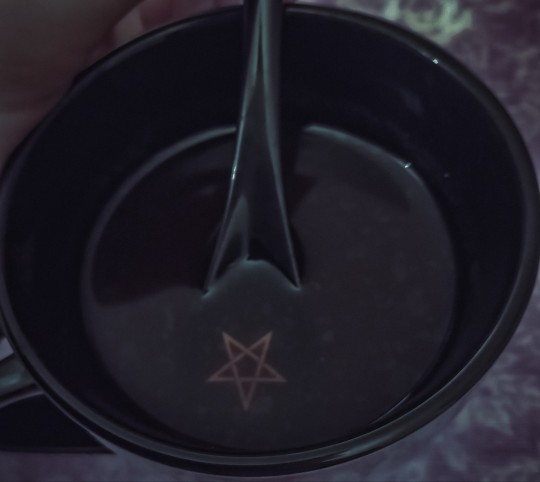Text

4 notes
·
View notes
Text
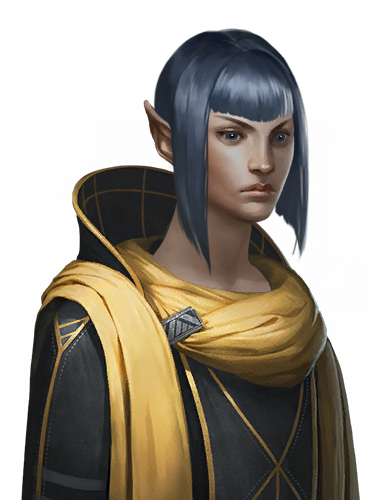
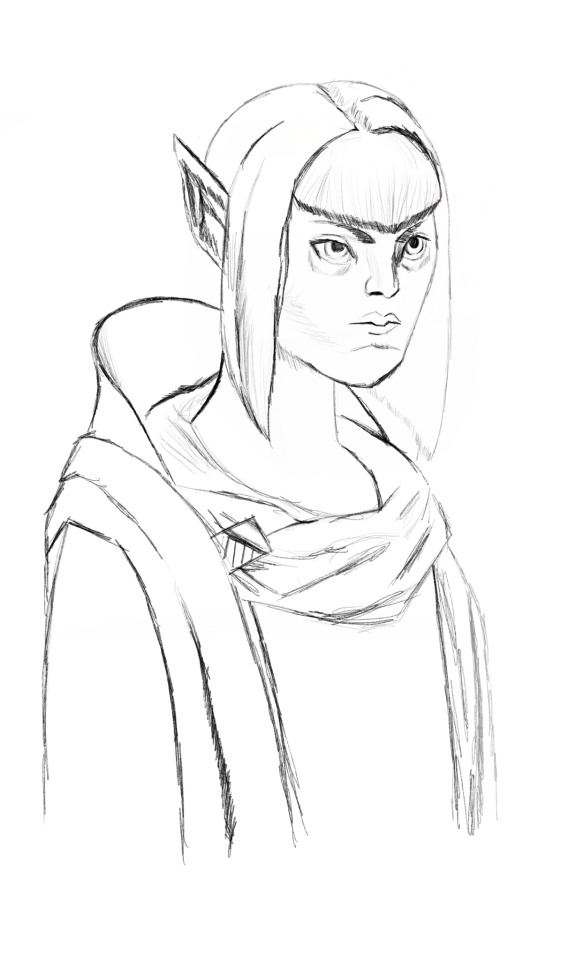
My practice in line art, but so far in the form of redrawing another image (portrait of a humanoid from the game Stellaris). Then I want to make an independent work.
7 notes
·
View notes
Text
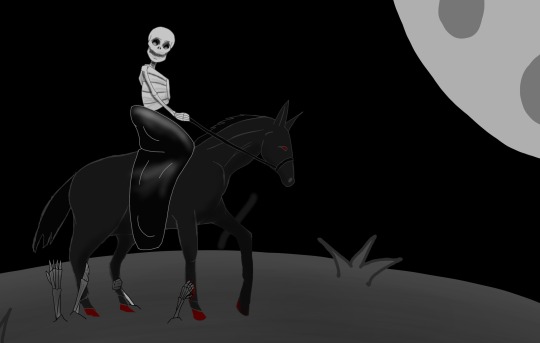

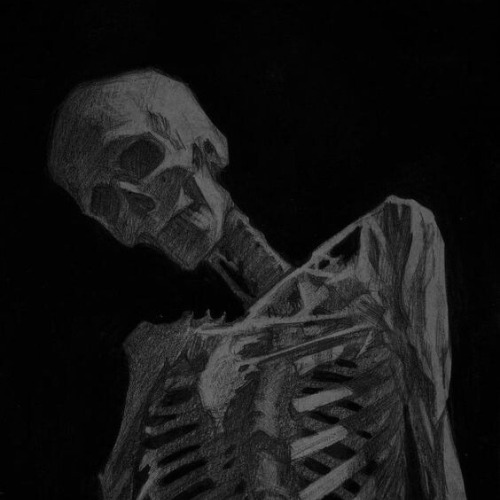
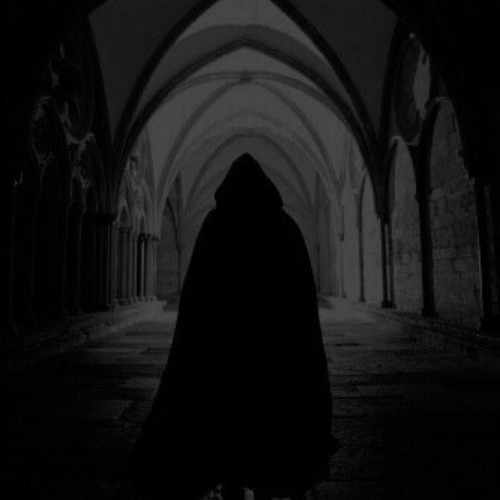
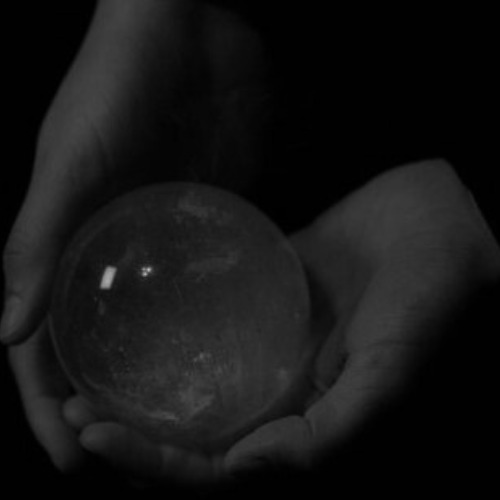
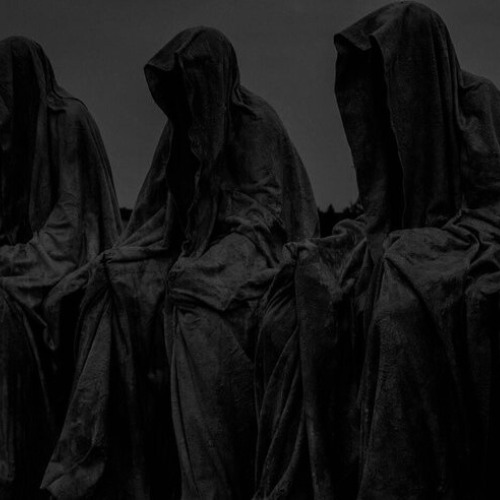
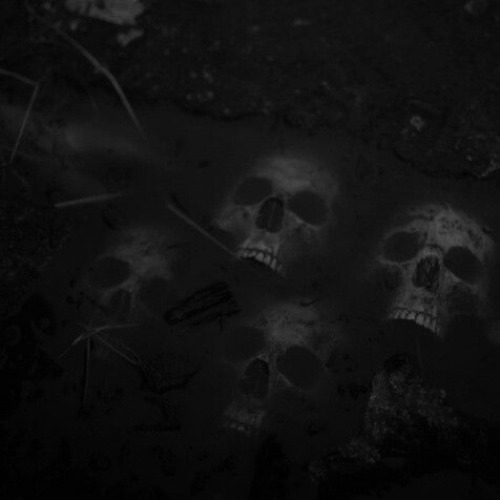
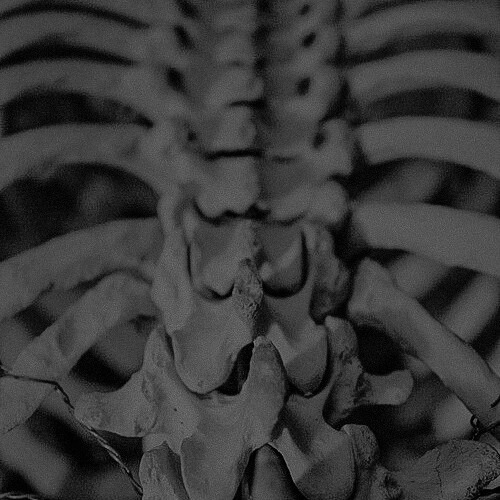

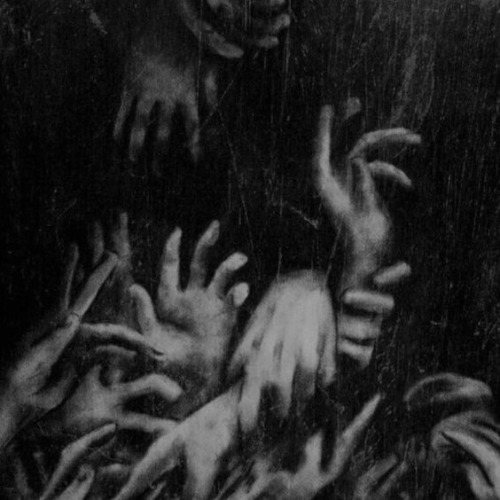
breton mythology: ankou
ankou is the servant of death. he appears as a man or skeleton wearing a black robe and a large hat that conceals his face, or, on occasion, simply as a shadow. he wields a scythe and is said to sit atop a cart for collecting the dead, or to drive a large, black coach pulled by four black horses and accompanied by two ghostly figures on foot. in some versions, ankou is depicted as the first dead person of the year, charged with collecting others' souls before he can go to the afterlife.
151 notes
·
View notes
Text
Something like that?
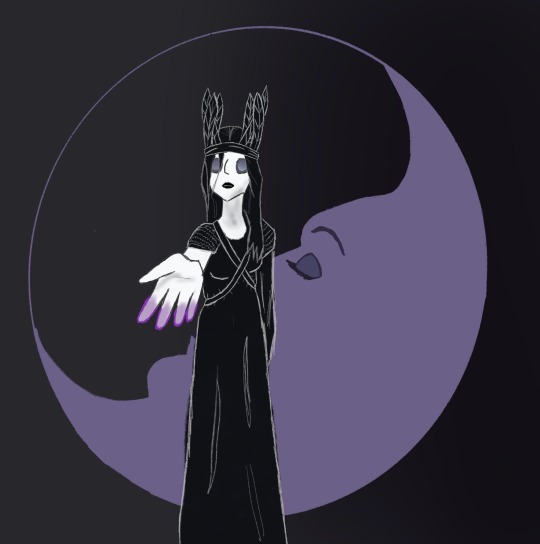
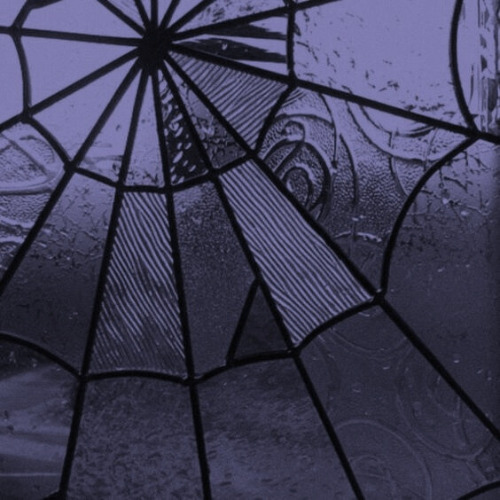
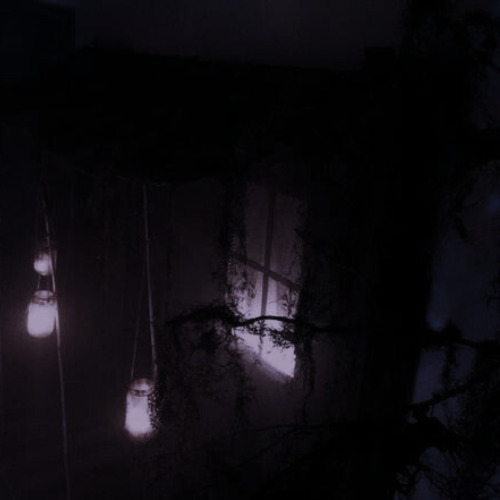
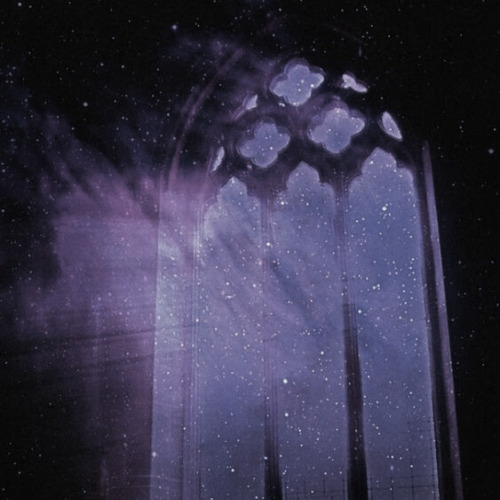


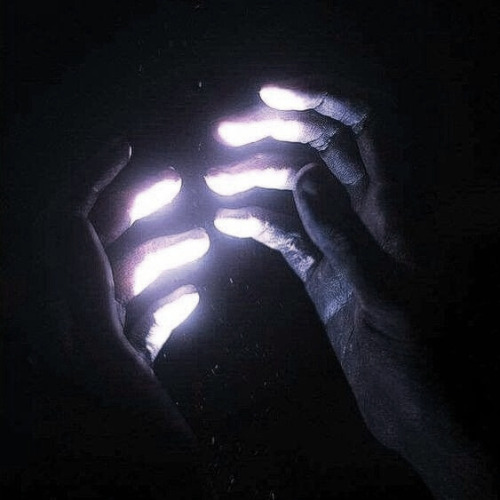

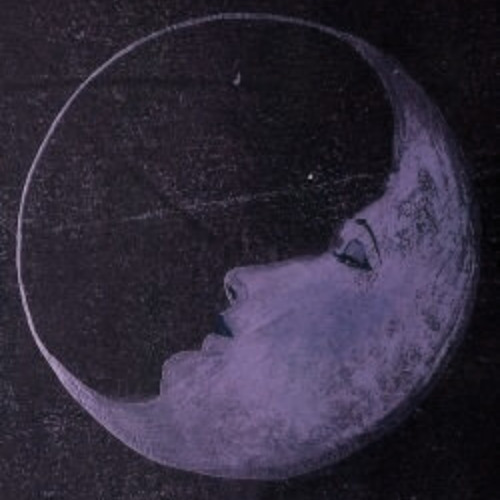

lithuanian mythology: dalia
dalia is the giver and taker of goods and property. she is often confused with and hard to distinguish from laima, another goddess of fate. sometimes dalia is thought of as a different manifestation of laima. however, laima is more involved in predicting the length of a person's life while dalia is more concerned with material wealth a person would earn during the lifetime – allotting a proper share to everyone.
151 notes
·
View notes
Text
You didn't ask me to... But I drew you. Well, I tried.
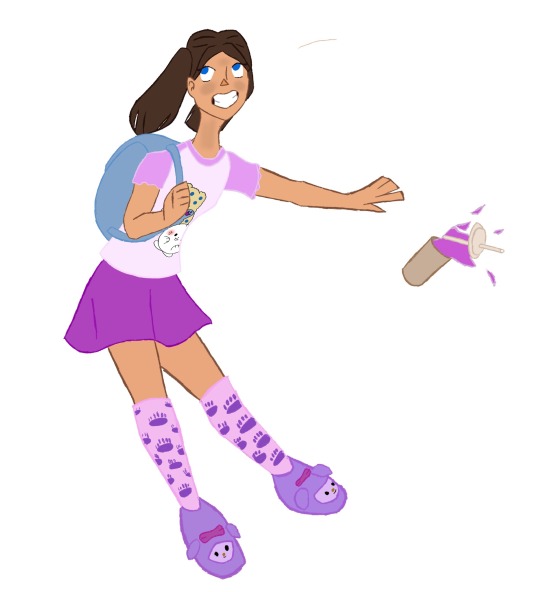
Raaaaah i luv m pink room

72 notes
·
View notes
Text
People in Polish folk costumes.
My Polish friend loved it.

0 notes
Text
I have an idea for a world in the mythpunk genre based on Slavic history, culture, mythology and paganism. If it would be interesting for you to read the history of this world, I will send it to you.
In the meantime, this is a heroine from this world – Slatka, a girl born and eyes with hair not simple, but golden.
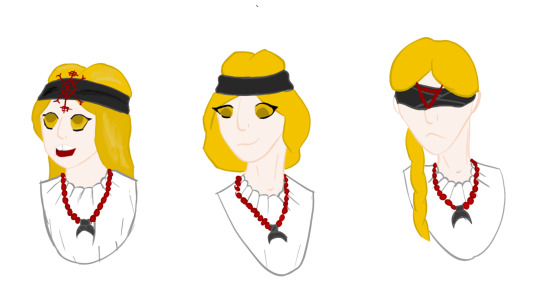
1 note
·
View note
Text
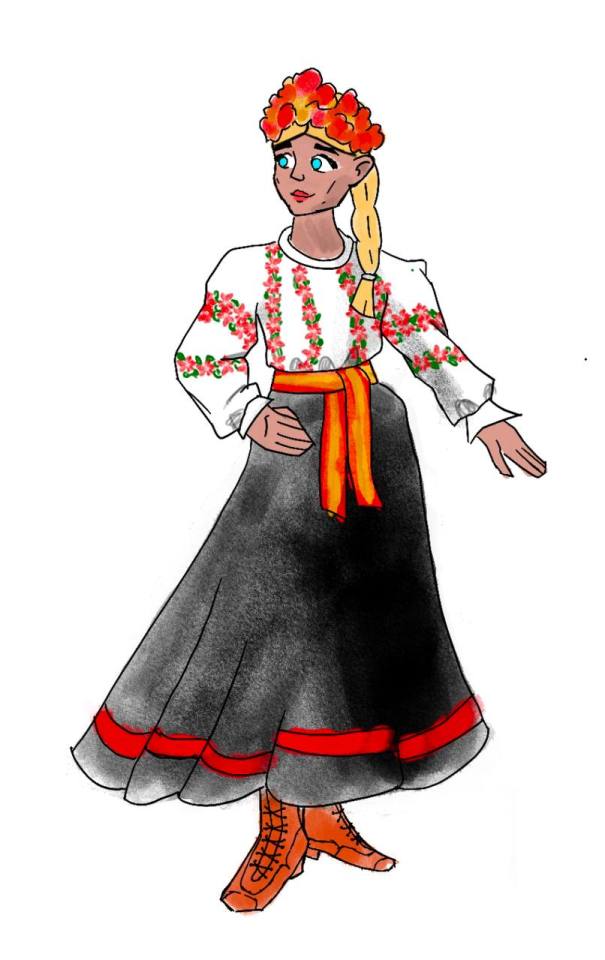
An attempt to draw a female Ukrainian folk costume.
9 notes
·
View notes
Text
Laima's sisters – I
The village was preparing for a new celebration in honor of the birth of new life that was set to happen today. People lined up in two rows from one of the houses to the nearest bathhouse, creating a pathway between the two buildings. Idols of the three Laima's sisters stood near the bathhouse, waiting for the child to be brought to them after its birth. Invisible beings dedicated to these wooden statues stood nearby, the sisters Laima, Kārta, and Dēkla, the goddesses of fate, observing the upcoming celebration, where they simply couldn't be absent.
Next to the house from which the path was laid out, the door opened, and Kārta, looking like a stern but kind woman with straight black hair, immediately flew as a ghost towards that cozy Baltic house. The second goddess of fate, Dēkla, also flew away from her idol, but not towards the house like her sister, but towards the bathhouse, where she later stopped, waiting for the one for whom the festivity was being prepared. And she soon made herself known...
A beautiful young girl with chestnut hair, dressed in a beautiful red garment with intricate embroidery, emerged from the house. Her belly was clearly visible, indicating she was in the final weeks of pregnancy. People who had known her since childhood, her longtime acquaintances, gathered around her in anticipation. Among them appeared the child's father: a tall warrior with a thick beard, but a pleasantly kind smile. He gently took her hand and led her to the bathhouse. Kārta stood behind the expectant mother and placed her hands on her delicate shoulders. She knew the girl's fate and watched closely to ensure she guided it as needed.
The girl was led to the bathhouse: her husband led her by the hand, and the invisible Kārta behind gently stroked her shoulders, as if soothing her before the impending difficult moments. Simultaneously, next to the idols stood the local priest, singing songs to the sisters of fate: for Laima to see a good destiny for the child, for Dēkla to watch over its childhood, and for Kārta to oversee its adult life. Finally, the girl, her husband, and the invisible goddess reached a structure where women with midwifery skills stood. They took the girl's hands from her husband's and led her into the bathhouse. Kārta released her shoulders before the pregnant girl entered, and Dēkla, as a swift phantom shadow, flew inside to observe the birth, until the door soon closed.
The priest's songs continued, but now regular people joined in as well. Gathering from the entire village, they brought offerings to the idols of the three sisters of fate, where Laima herself sat. If people could glimpse beyond, they would see a beautiful red-haired maiden in traditional Baltic attire, her hair flowing freely and only a band on her forehead keeping it from covering her face. She was adorned with beautiful accessories similar to those carved onto the idol: beads, bracelets, and other enhancements that enhanced her appearance. Food in the form of bread, meat, or milk was laid before Laima. Seeing the offerings, she took a piece of meat, inhaling its scent before enjoying it.
After a tense period that the acquaintances and loved ones of the pregnant girl had anxiously endured, the now exhausted and weary mother emerged from the bathhouse with her child in her arms. Her husband embraced her, encouraging his beloved, after which the priest approached them. He spoke to the young beauty about something, while Dēkla emerged from the bathhouse and ran to her sister, then sat next to her and rested her head on her shoulder. Karta performed a similar action, but even earlier than Dēkla.
"Tawa wertaza" Dēkla whispered, indicating that it was now Laima's turn.
Laima nodded in response to her sister's whisper, watching as the priest brought the child to her, wrapped in a white cloth with beautiful embroidery. Standing by the idol, the priest knelt before Laima on one knee, presenting the child.
"Jei varda Dovilė, galybėta Laima" he named the girl, Dovilė, mentioning both the child's name and the might of Laima as the goddess in people's lives.
Laima smiled, hearing the respectful reference to herself. Her gentle hands reached for the little girl and touched her head. The goddess's eyes closed, focusing on the destiny of this child, while everything around lost its significance in this pivotal moment.
Dēkla and Kārta observed their sister, surrounding her from both sides, when suddenly she abruptly recoiled from the girl, barely holding back her scream. The two sisters hurried to their leader. Seeing her panic, they started to calm her, gently stroking her hair and shoulders to soothe her.
"Kas negera, sesuo?" asked Kārta affectionately what had happened.
"Ar mačiai kažką blogo?" asked Dēkla if Laima had seen something scary. "Tai pasakyk tiksliai, ką mačiai!" then demanded of Dēkla that Laima share her visions.
"Pasakina iksī, sesves," she replied that the news of the conduct would reach the sisters later. "Galita geriau mudī þīnuemo Dovilės gimdinėdą þiuwa senwem jah þīnaemo, jah iȝ matnainis þans gibanþ þaīra manags."
Not wanting to spoil the celebration now, Laima suggested that her sisters celebrate with people for the time being, have fun with them and rest, so as not to spoil their mood now, at such a beautiful hour.
The sisters agreed with Laima's words, suppressing their curiosity. She was the main sister in this trio. Therefore, trying to forget about the situation, the three of them joined the feast, enjoying the people's traditions in honor of the child's birth, in honor of the three of them, and in honor of fate itself. The villagers themselves weren't left with empty stomachs either, as they began a wonderful feast around a table filled with prepared food, thanking the gods for the birth of such a dear girl. As spirits, Laima's sisters magically absorbed the offerings made to them, after which each of them went their separate ways.
Dēkla left first. Playful and cheerful, after the pleasant meal, she briskly rose and headed towards the young men and women who were joyfully dancing the traditional dance around the fire, lit by the priest for the ritual illumination of the child over the flames. At first, she blended into the crowd of young lads and girls, then suddenly reappeared among them, visible and tangible to mortal eyes. Petite but incredibly endearing, she looked more like a girl than a woman, with her luscious light hair. Among the dancers, she clasped her hands with an unfamiliar mortal girl and joined her in a spirited dance, laughing playfully. To Laima, she resembled an innocent child who only knew how to have fun, and she wanted to protect her from all harm.
Kārta left second, but she didn't head towards the younger crowd. After rising following her sister, she intended to join the older and more mature men and women who were digging the earth to plant a tree that would symbolize the life and development of the newborn child. However, Laima suddenly stopped her, raising her hand:
"Keisz tiems ūsiems kunā, kur samaiswirkestus aukstakai," the goddess of fate asked her sister to inquire from the local priest where the nearest thunderstorm would occur.
Kārta responded with a slight nod and continued on, also becoming material for people, as long as they didn't look at her. She then requested permission to personally plant the tree, promising to tend to the earth herself the following morning.
For Laima, close interactions with humans were primarily with mothers and pregnant women whom she protected. Her eyes naturally turned to a new young mother who sat at the table with her child in her arms, a child who would soon receive her amulet after being purified by fire, which the priest was carving nearby. Laima rose from the ground and walked toward the festive table, assuming a physical form along the way, so that she could be seen, heard, and touched. She approached the young woman closely, sitting down next to the mother of the newborn Dovilė on one knee. Her hands gently caressed the baby's face.
"Tu teka graīna dzīvate," she said to the young parents, complimenting them on their beautiful daughter.
"Lūkij þrīnsta laukul þūlo," the father of Dovilė thanked the unknown woman for the kind compliment, "ak nusilvin leizā leinūtai lina, kam tū emāūþats veizne. Mīnei enaiken emāū leibūre, ni mākem kraupum jaukūsi tuoseiū?"
However, despite her physical appearance, Laima's identity was unfamiliar to the man, so it was logical for him to express that he didn't recognize the woman who was now sitting next to his wife. Thus, stating that he had not seen her before in the village, he asked her who she was.
"Mana sekesā ūnna jinaid wīran, geidmen þūna dukterē giminēs miþils," Laima replied that she and her sisters were travelling through these lands, observing the festivities celebrating the birth of new children, as if giving only hints of their true nature with their words, but not revealing it fully to a mortal. "Mi þawa iþ maḍia smaīla... Upo augai daugē sweika þei völlaute dukterei þei ḍeinai. Ji īk āþs vilikam neeis."
At the end, Laima only, seeing the beautiful and innocent child's face, expressed her wish for good luck for this little miracle. Good luck... Which for her would be much needed in her grim fate, which Laima, to her sorrow, saw.
0 notes
Text
I really like the animated series She-Ra and the Princesses of Power by ND Stevenson. I admire how this author adapted and transformed this world, modernizing it in a way. Through this author's work, I saw new perspectives on characters (for example, Adora, who transformed from a princess into a soldier). After watching this series, I started to wonder, what if these people took on a similar reboot of He-Man and the Masters of the Universe? And that's when my imagination took flight..
I began fantasizing about a new version of Adam and the characters around him, even to the point of reuniting with his lost sister, Adora, and their joint adventures in battle against Skeletor.
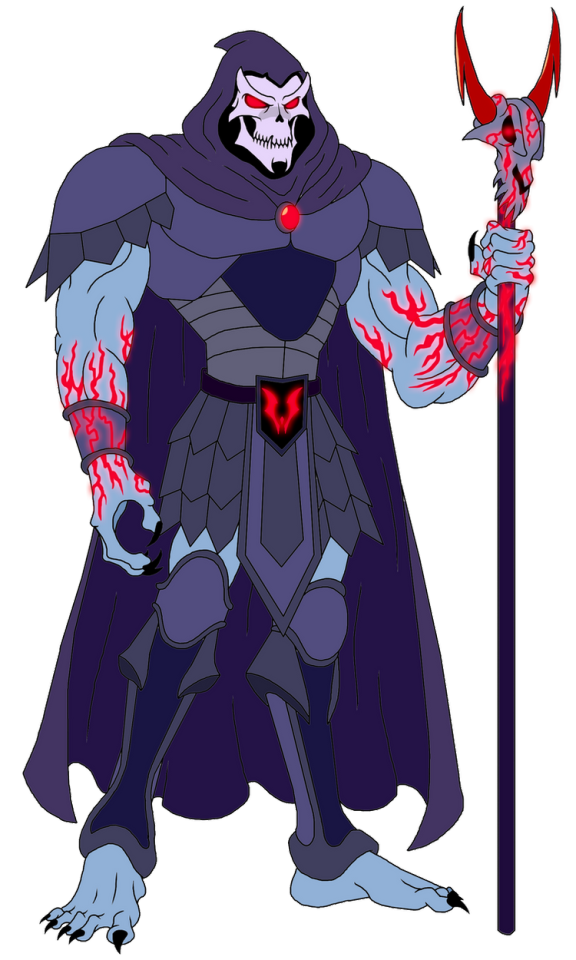
Skeletor... He also fell victim to my vivid imagination, envisioning some kind of sequel-spin-off, where the main roles would be held by characters from the He-Man series, but involving characters from the She-Ra series. And for Skeletor, as the main antagonist, my imagination crafted an intriguing backstory that I would like to share with you; it's the chaotic concoction my mind cooked up for this character. Enjoy the reading.
Even before the birth of Adora and Adam, the Horde Prime's Order conquered the cosmos. They accomplished this by sending their Heralds to planets, which autonomously subjugated these planets, and then Horde Prime absorbed them into his cosmic empire. One of these Heralds was sent to the planet Eternia. It seemed like a conquest that should have been easy: the Herald swept through the planet with his army, and then the cosmic fleet of Horde Prime would arrive to fully annex the planet. However, unexpectedly, the inhabitants of Eternia put up incredible resistance, and they were aided by the great hero and defender of the planet - He-Man, the strongest man in the universe. Armed with a mighty sword, he effortlessly vanquished the Herald's armies, becoming the arch-nemesis of the Herald. However, He-Man, whose true identity is Prince Randor, the king of Eternia, doesn't wish to fight the Herald. He believes that the Herald possesses a soul that is being suppressed by his connection to Horde Prime, hindering independent thinking. After years of war, He-Man manages to find the person within the Herald, and suddenly, the Herald gains independent consciousness, recognizing himself as a separate individual. Over time, the Herald takes the name Keldor.
An interesting fact is that when the eyes and teeth of Horde Prime were green, and those of Hordak were red, I envision Keldor's eyes and teeth as blue.
However, the happiness doesn't last long. Horde Prime, noticing the disappearance of the Herald, personally leads his armada to Eternia, intending to conquer it with his own hands. The united defense of Eternia's army and Keldor's army begins to resist Horde Prime. Their chances of victory increase significantly because Keldor knew Horde Prime's vulnerabilities, and he helped inflict such heavy losses on Horde Prime that he fled the war, deciding to leave Eternia in peace. The whole planet celebrated the victory in the war, and Keldor became King Randor's right-hand man, his best friend, and a loyal comrade-in-arms.
Eternia began to recover. Randor married a woman who bravely fought during the war against the Horde, and they had twins together. Keldor saw them as infants and was amazed by them, seeing future heroes in them. Unfortunately, a misfortune struck when some beings from a portal abducted the princess. Keldor couldn't catch the thieves, but he saw someone among them who resembled himself - another drone of Horde Prime.
Only Adam remained. As the boy grew up, he developed a deep affection for Keldor, seeing him as an influential figure. Adam wanted to play and have fun with Keldor, but Keldor tried to avoid the little prince. Fate, however, brought Keldor closer to Adam: he began sharing wise advice with the young prince, teaching him academic disciplines, and even helped him impress another boy who would later be known as Teela. Soon, Keldor grew fond of the boy and became his mentor while Adam's parents were occupied with politics.
At the same time, Keldor learned that the inhabitants of Eternia were descendants of the once-mighty universal civilization known as the First Ones. Enthralled by this information, Keldor told Randor that Eternia, with its technology akin to magic, could venture into space and lead a mass expansion, reviving this great civilization. The only thing Keldor needed to grant Eternia this greatness was the power of Castle Grayskull, which fueled He-Man's Sword of Power. Upon hearing this, Randor refused his friend's request, but Keldor decided not to give up.
Keldor went underground and found allies. He established his own organization, donning high-tech armor, wielding a magical staff, and wearing a mask resembling a human skull. Under his new identity, called Skeletor, he began pursuing his goal of obtaining the power of Castle Grayskull.
In their first battle, he managed to wound He-Man severely, to the extent that Randor dropped his sword, becoming an ordinary king. However, Adam took up the sword, uttering the iconic phrase, "I have a Power!," transforming into the new He-Man, and defeating Skeletor. Thus began the eternal war between He-Man and Skeletor for the secrets of Castle Grayskull.
With each battle, Skeletor grew more ruthless, while Keldor distanced himself from the court of Eternia, especially from Adam, becoming colder and more indifferent to the affairs of the royal family. After another battle, filled with hatred, Keldor's mind, gradually being replaced by the persona of Skeletor, devised a plan to use his presence in the highest echelons of Eternia society to execute a coup and become the ruler of Eternia, finally gaining access to Castle Grayskull. The plan succeeded: under the guise of Keldor, Skeletor infiltrated the castle, killed Adam's parents, and his army invaded the capital. Adam managed to escape, and Skeletor declared him a wanted man. However, at the same time, Skeletor was tormented by his actions, struggling with the fact that he was gradually becoming a different sentient being - the cruel Skeletor.
Naturally, Adam returned with his friends to liberate Eternia. In the battle on the castle roof, Skeletor, unwilling to kill Adam, offered him a great alliance, which the young man refused. In the battle, Skeletor inadvertently harmed himself: magical flames engulfed his head, causing him agony, and he fell from the castle roof into the nearby river.
While Eternia celebrated another victory, somewhere far away, Keldor emerged from the river in high-tech armor, leaving his magical staff on the shore. He kneeled down and touched his face: the skin peeled off the bones like boiled flesh, and in a fit of madness, Keldor continued to peel it off until only his skull remained. Keldor's furious cry turned into laughter: insane, unhinged, and hoarse. The laughter grew louder and louder, frightening the animals in the forest.
The wise Keldor was dead. In his place, emerged a deranged evil madness - Skeletor!
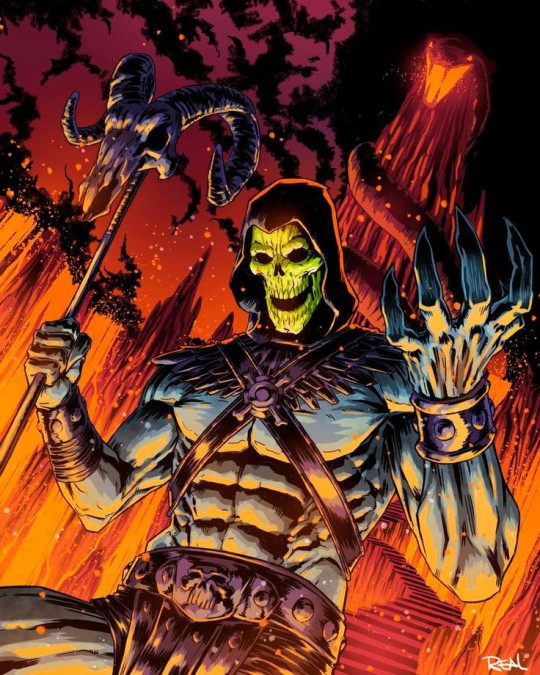
4 notes
·
View notes
Text
Horned God, Triple Goddess and Aradia from Wiccan religion.
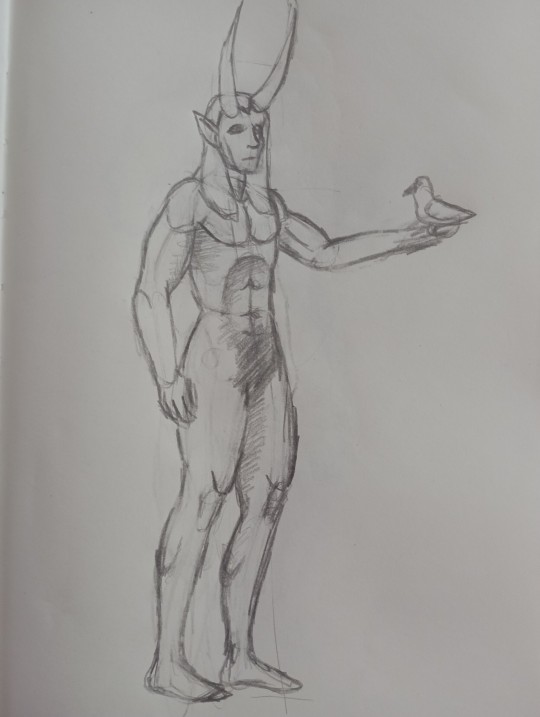
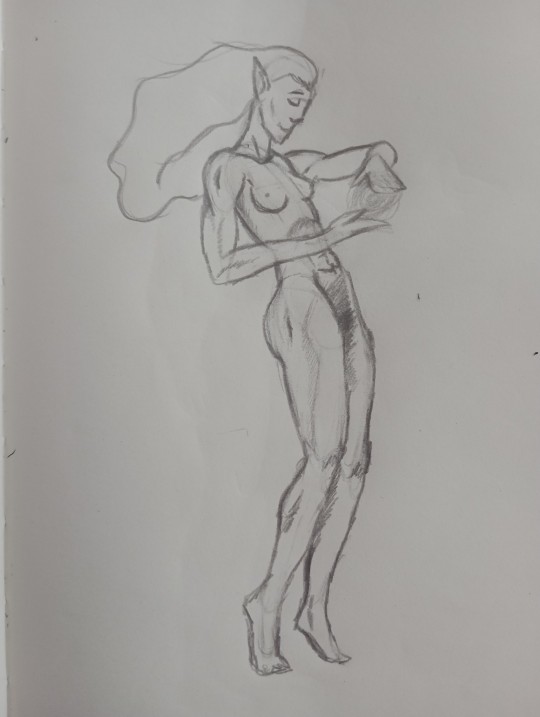

4 notes
·
View notes
Text
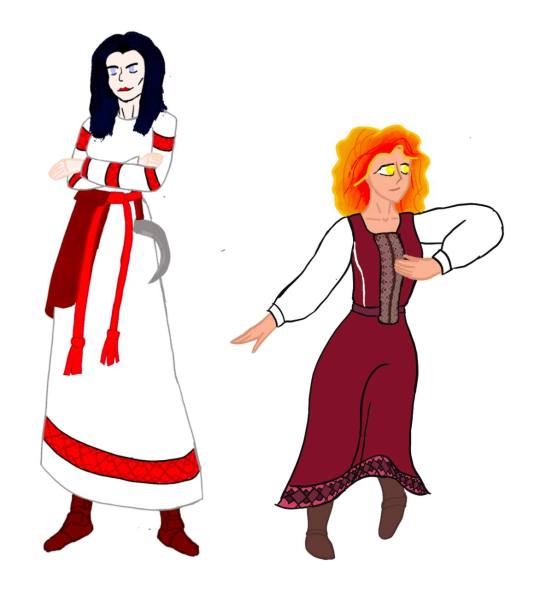
I'm shiping them.
Marzanna from Slavic mythology and Sáule from Baltic mythology.
1 note
·
View note
Text
What a rough introduction to Celtic mythology looks like:
- Well, I want to learn about Celtic mythology. Can I learn, for example, how the world was created here?
- Nobody knows.
- ... OK. Then what gods are there?
- The most popular is Cernunnos.
- Wow. Who is he?
- Nobody knows.
- Okay, that's not normal... What about Artio, the bear goddess?
- Nobody knows anything about her.
- Ahem. What do you know?!
- The Morrigan is a dream girl.
- Well, I already knew that.
1 note
·
View note
Text
I love the shooter genre in video games, especially story-driven shooters with a world, plot and characters, like Call of Duty: Modern Warfare (2007). Naturally, like every player, I was losing, which, however, led to the death of the character I was playing as. And at such a moment, I often had the question, «What's next?».
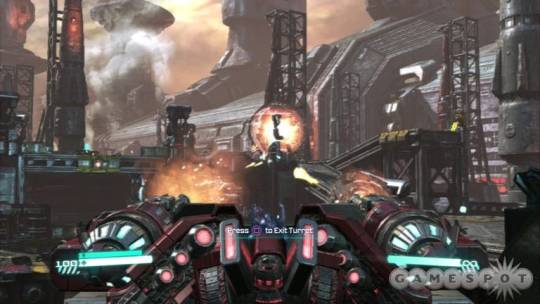
For example, in Transformers: Fall of Cybertron (2012), in the second level of the game, the player plays as Optimus Prime. And, due to the player's sloppiness/inexperience, Optimus dies during one of the battles with the enemies. Or the mission where Megatron wants to get to Tripticon, where again for the same reason Megatron dies.
And it was in this game that I started to wonder, «What happened next? How did the story, the world, the universe change when this character died at this point? How did the enemies or allies react? How would absolutely everything have gone in this 'alternate universe'?»?
Heh. What if every such death of a playable character creates its own separate alternate universe, where everything changed just with that character's death?
0 notes
Text
Disney:
– Wow. There are so many graves next to you. Is that how many of your animators died from recycling?
Dana Teracce:
– Y-yes, animators...
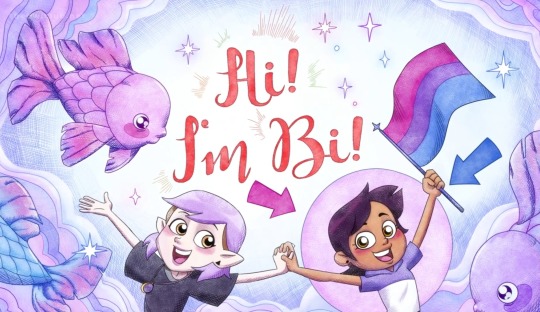
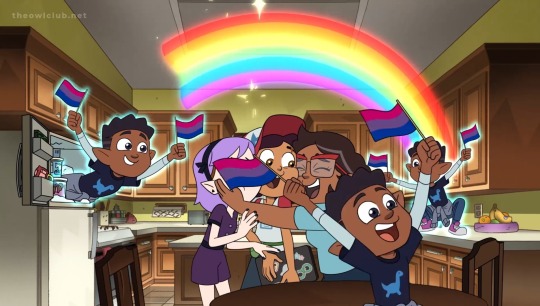

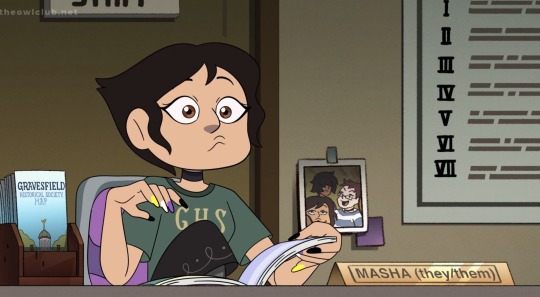

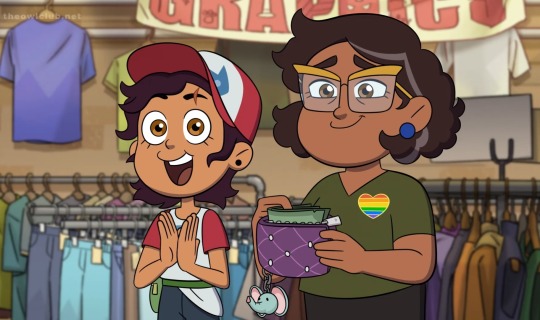
The Owl House s3 ep 1 + pride flags
2K notes
·
View notes
Text
Disney:
– No... NO, GOD.






The Owl House s3 ep 1 + pride flags
2K notes
·
View notes
